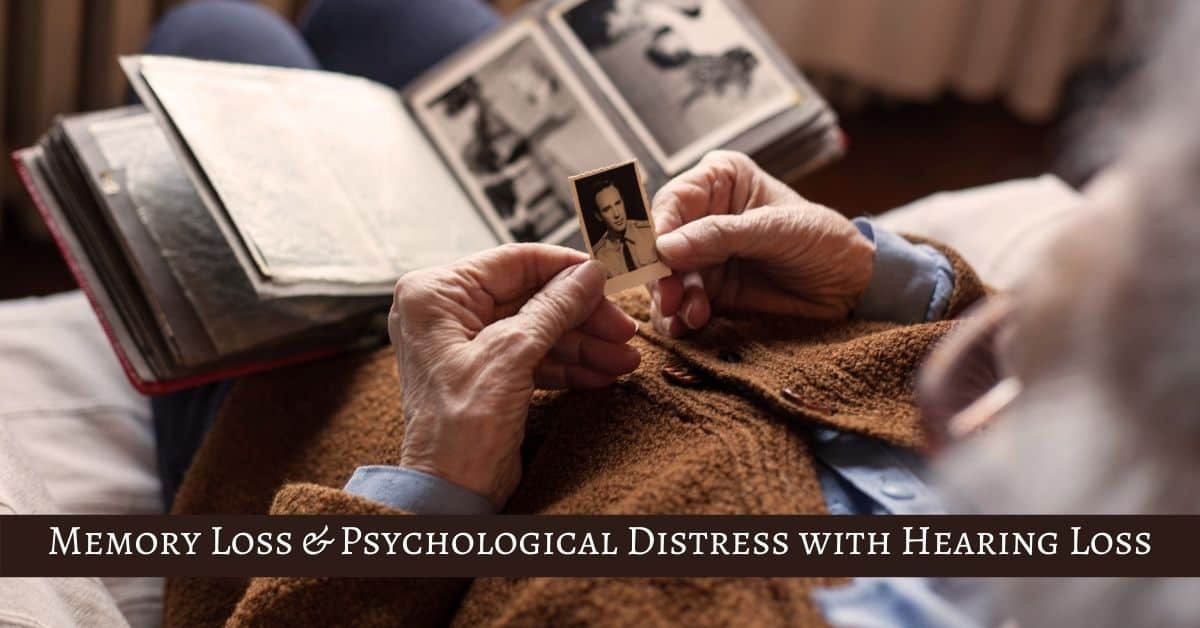- How to Know It Is Time to Upgrade Your Hearing Aids - April 8, 2024
- Hearing Aids 101: A Comprehensive Buyer’s Guide - March 4, 2024
- Navigating Communication Gaps in the Face of Hearing Loss - February 9, 2024
You’re at home on a Saturday morning, and after breakfast your spouse asks you to make sure to be available for a package delivery before they head out to do some shopping. You’ve been having trouble with hearing loss, and at first you think they’ve said to make sure to close the back gate, but you both know it’s closed, so you ask them for clarification. After a few repetitions you understand that they want you to be there to answer the door for a package delivery.
After a few minutes your mind wanders and you head into the garage to tidy up, having totally forgotten about the package. When your spouse returns, they find a note on the door saying the delivery service will attempt again on Monday.
Maybe this isn’t a big deal, or maybe it’s indicative of a growing problem.
Study on Hearing Loss, Memory Trouble, Psychological Distress and Limited Outdoor Activity
A recent study based on data collected in the 2016 Comprehensive Survey of Living Conditions in Japan had some interesting results. The study looked at 137,723 adults over age 65, not living in assisted living facilities, and who had not been clinically diagnosed with dementia. 9% of respondents self-reported hearing loss. The study looked for correlation between hearing loss, memory issues, limited outdoor activity, and psychological distress.
Researchers found strong correlations between hearing loss and all three issues. Those with hearing loss were twice as likely to have limited outdoor activity than those with normal hearing; they were 2.1 times as likely to feel psychologically distressed; and they were 7.1 times more likely to report having memory loss.
Because the study had such a large sample size and relied on self-reported data, we can get a more accurate sense of the lived experience of the participants with hearing loss. Clinical diagnoses of memory issues may be interesting as well, but the important thing to glean from this study is that people with hearing loss feel like their memory is impaired, they don’t spend much time outside, and they feel psychologically distressed.
The study is titled, “Associations between self-reported hearing loss and outdoor activity limitations, psychological distress and self-reported memory loss among older people: Analysis of the 2016 Comprehensive Survey of Living Conditions in Japan.” It was published in Geriatrics Gerontology International, a medical journal.
Memory Loss, Fatigue, and Hearing Loss
The most pronounced difference between those with hearing loss and those with normal hearing was in self-reported memory loss. There is evidence that our ability to hear is directly linked to short term memory. The auditory cortex of the brain, located just behind your ears and spanning your head from side to side, has a direct pathway to short term memory.
Anyone who suffers from hearing loss can tell you just how exhausting it is, but we can see the mechanism at work in the brain that explains this fatigue. You see, as the auditory cortex receives less information from the ears, we rely more on our frontal cortex to help us understand what someone is trying to say to us. We accomplish this by analyzing facial expressions, partially-heard fragments of speech, and context clues. While we are not utilizing our auditory cortex as much as we once did, we are overusing our frontal cortex, which leads to exhaustion.
We don’t yet understand why this seems to cause memory loss, but it may have something to do with this “cognitive load” on the frontal cortex, or a further distance between the frontal cortex and short-term memory. Under circumstances of normal hearing, our auditory cortex does the work of understanding speech and automatically commits it to nearby short term memory. Our frontal cortex may have a different relationship to memory that makes it more difficult to remember information that we “receive” there… It might be similar to having a great idea, and forgetting it when you don’t write it down.
Hearing Aids Can Help
In addition to helping with the fatigue that hearing loss engenders, hearing aids may also improve short term memory in those with hearing loss. If we can return to being able to understand the spoken word, our brains can function as they’re accustomed to and a number of cognitive problems can be ameliorated.

